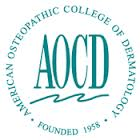


NOW ENROLLING: the ADopt-VA study
With atopic dermatitis, itching isn’t even the worst part.
From the embarrassing red blotches to the painful sores, atopic dermatitis symptoms require the right treatment. If you are between the ages of 18 and 55 years old and have moderate-to-severe AD and topical treatments have not worked well, you may qualify to participate in the ADopt-VA study for an injectable investigational medication.
About the ADopt-VA study
As you know, atopic dermatitis (AD) is a chronic, severe form of eczema that is marked by dry, red, and itchy skin. Even with the treatment options that are currently available, many people with AD continue to experience painful and irritating symptoms.
Right now, research is underway on an injectable investigational medication for AD. An investigational medication is one that has not been approved by any regulatory agencies. TheADopt-VA study is testing out how the investigational medication may impact the effectiveness of certain vaccines, as well as show how effective and safe it is in the treatment of adults with moderate-to-severe AD. Study volunteers can help us in this important research. Thank you for considering participation in this study.
Who is eligible?
To be eligible for this study, you must:
- Be between the ages of 18 and 55 years old
- Have had moderate-to-severe AD for at least one year, with a history of inadequate response to topical treatments
- Have not recently (in the last 4 years) received the Tdap or MCV vaccines
This is not a complete list of study requirements. The study doctor will review the full requirements for this study with you.
How long will the study last?
You will be in this study for up to approximately 32 weeks, and you will need to come to the study center at least 7 to 11 times over this period.
What to expect
If you qualify for the study and decide to take part, you will be randomly assigned (like the flip of a coin) to receive either the investigational medication or a placebo (which contains no active medication) as a subcutaneous (under the skin) injection every 2 weeks for 16 weeks. You will have a 50% (1 in 2) chance of receiving the investigational medication and a 50% (1 in 2) chance of receiving placebo. The study is blinded, which means that you and the study doctors will not know your treatment assignment.
At 12 weeks, you will receive 2 vaccines: MCV (meningococcal) and Tdap (tetanus, diphtheria, and pertussis). These are common vaccines and they are given as intramuscular (IM) injections.
If you complete the 16-week study treatment, you may be able to continue receiving treatment with the investigational mediation in a separate long-term extension study. If you end the study early, or if you choose to not continue to the long term extension study, you will have a safety follow-up visit approximately 12 weeks after your last study drug injection.
You will have about 11 study visits throughout the study. Visits will occur at the study clinic. Lab tests, a physical exam, and other assessments and questionnaireswill be conducted at study visits. Not all activities will occur at every visit.
What are the costs?
You do not have to pay for the investigational drug, study supplies, study visits, or tests that are part of this clinical research study.
What you should know about clinical research studies
Clinical research studies aim to answer specific questions about how medicines work in the volunteers who take them. You should feel fully informed about what to expect from participation in a clinical research study.
Researchers use clinical studies to:
- Answer specific health questions
- Learn about the effects and safety of investigational medications
- Help find new ways of using approved medications
Regulations and policies have been developed to help protect the rights, safety, and well-being of people who take part in clinical research studies and to help ensure that these studies are conducted according to strict scientific and ethical principles. Before a clinical research study can begin, an institutional review board (IRB) or ethics committee (EC) must review and approve the study.
Participation in any clinical research study is completely voluntary, and you may withdraw from a clinical research study at any time for any reason. Before volunteering for a clinical research study, it is important to weigh the potential risks and benefits of participation. The study team will inform you of the potential risks and benefits of study participation, as well as possible side effects. To make an informed decision, gather as much information as possible and talk to your healthcare provider about any questions you may have.
For more information, please contact:
Oakland Hills Dermatology
3400 Auburn Rd, Suite 100
Auburn Hills, MI 48326
(248) 858-2255 ext. 4
oaklandhillsreceptionist@gmail.com



